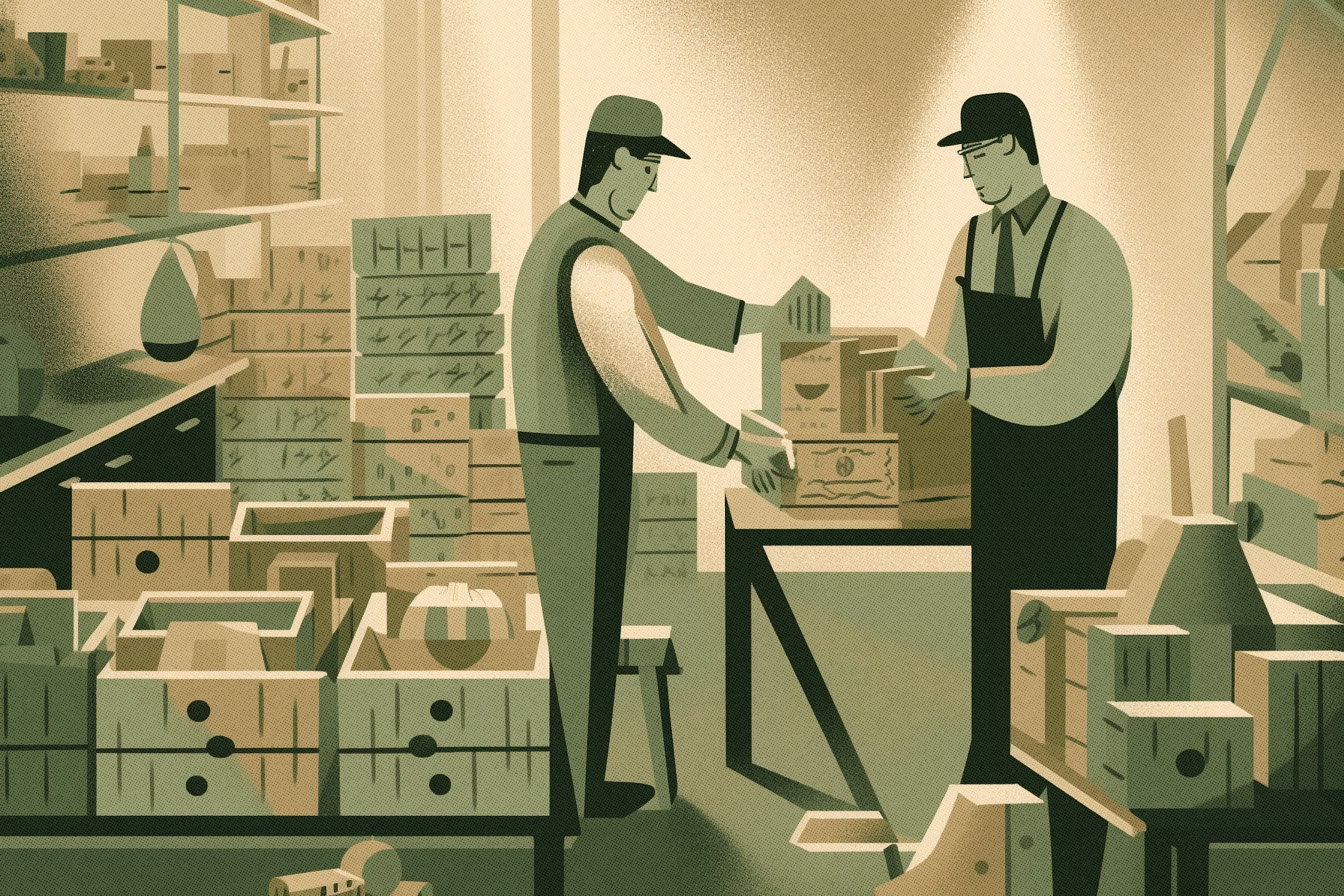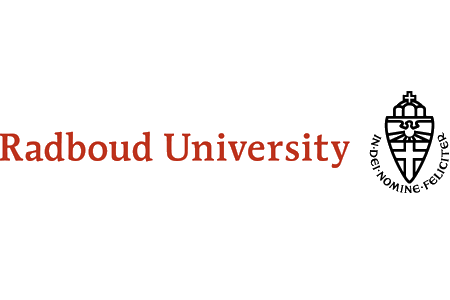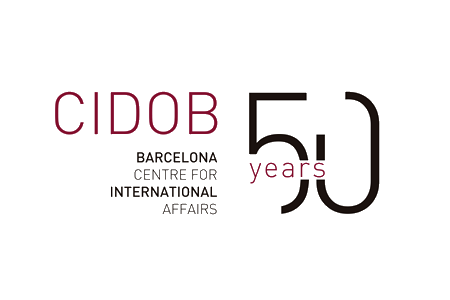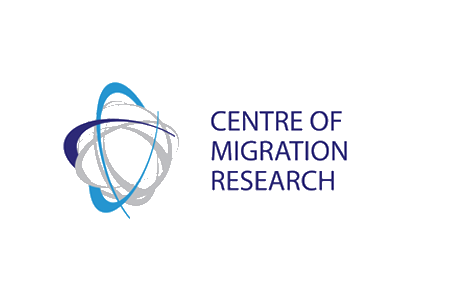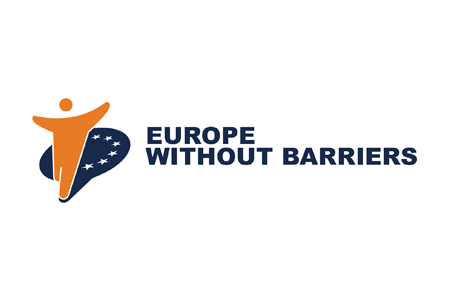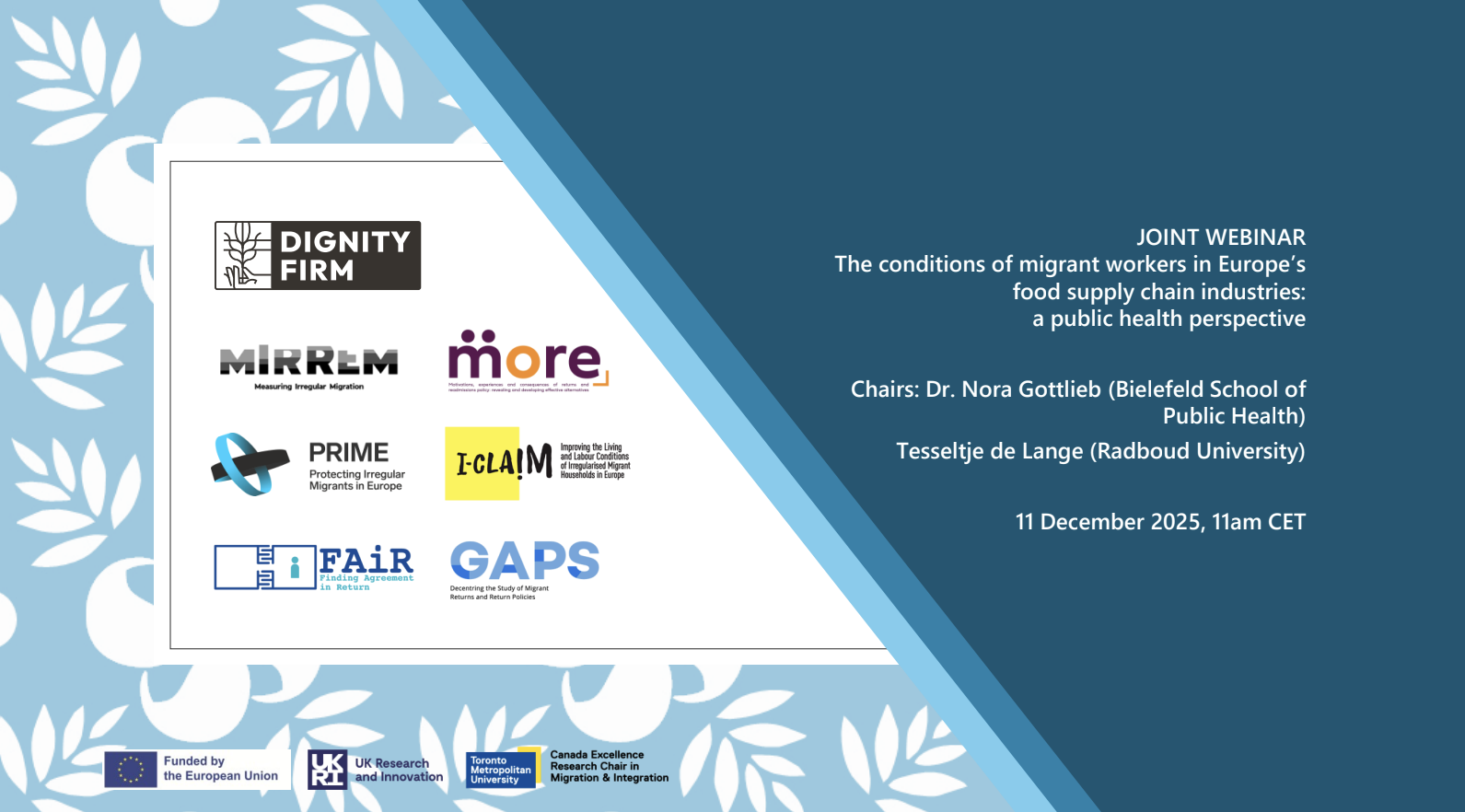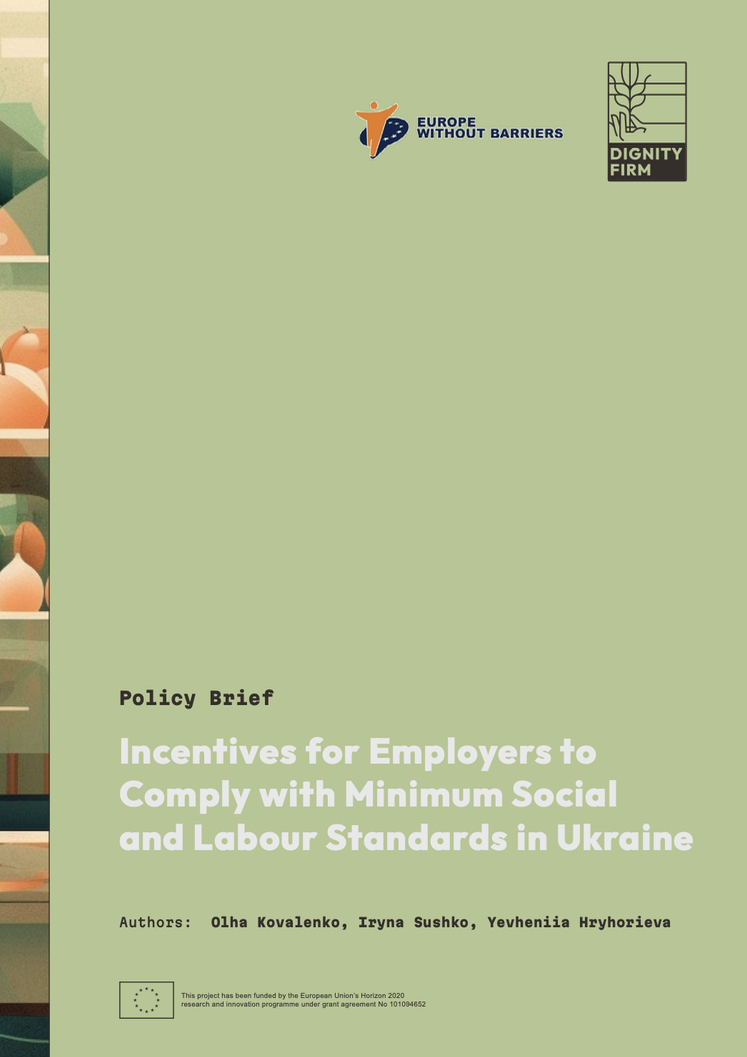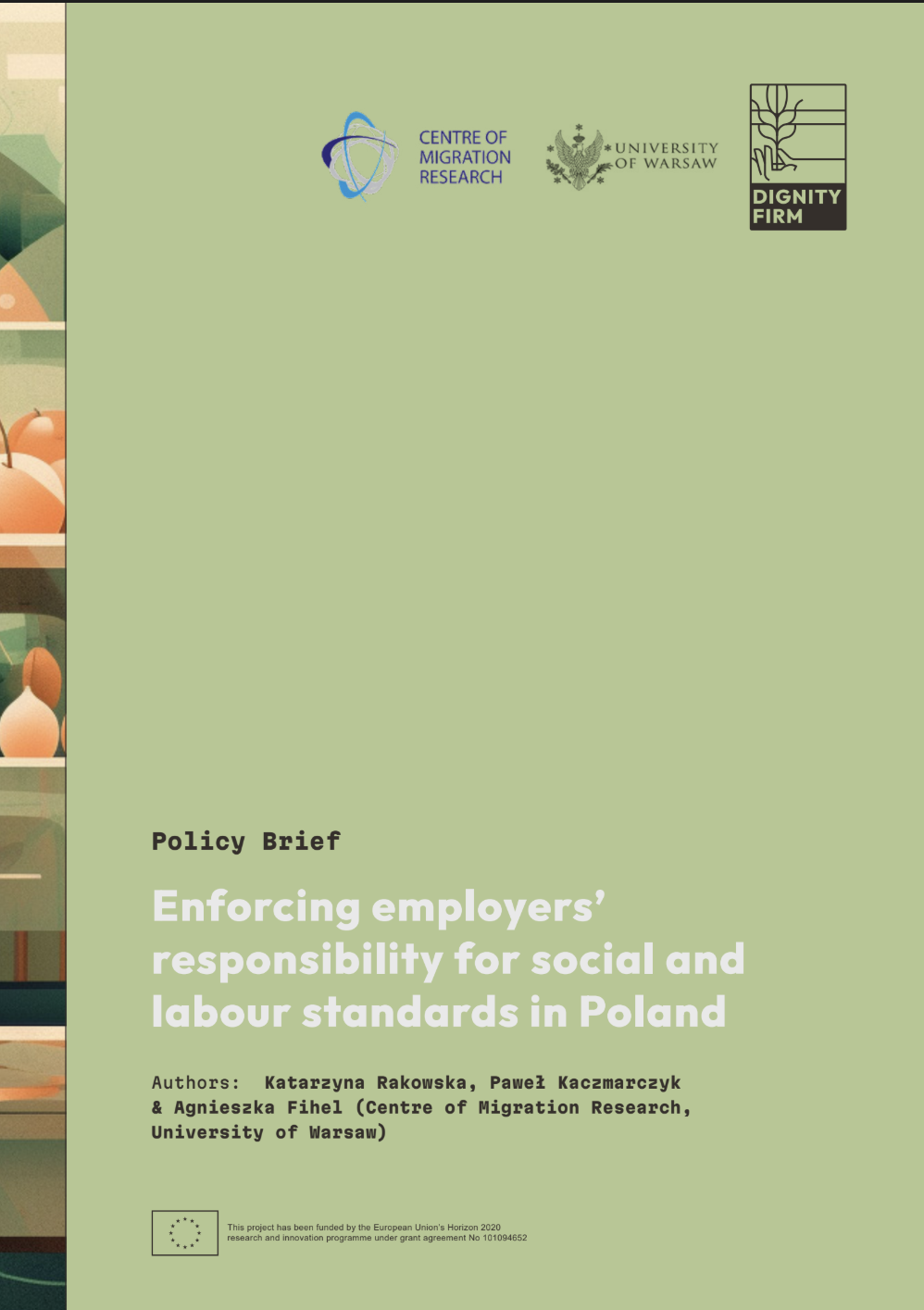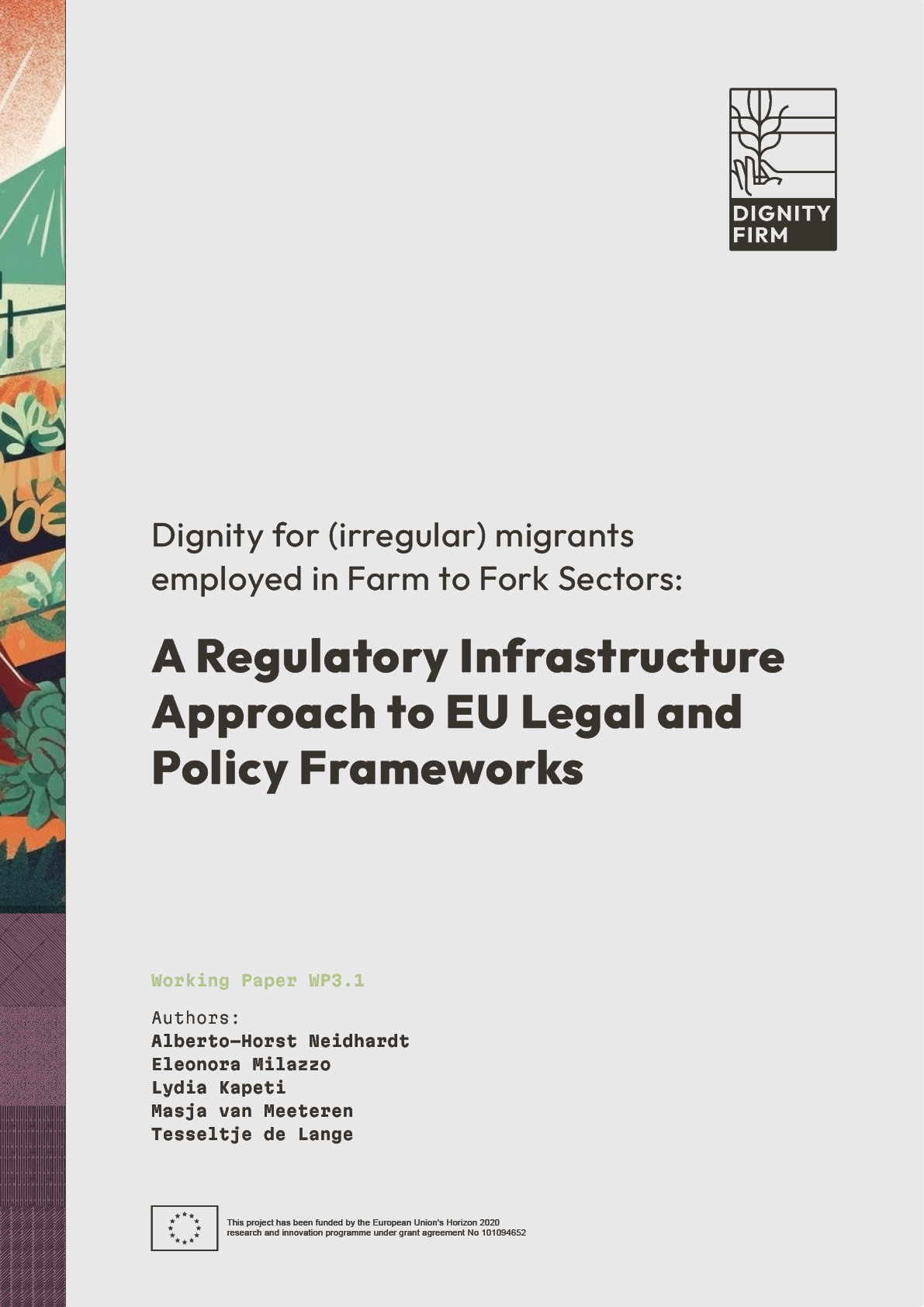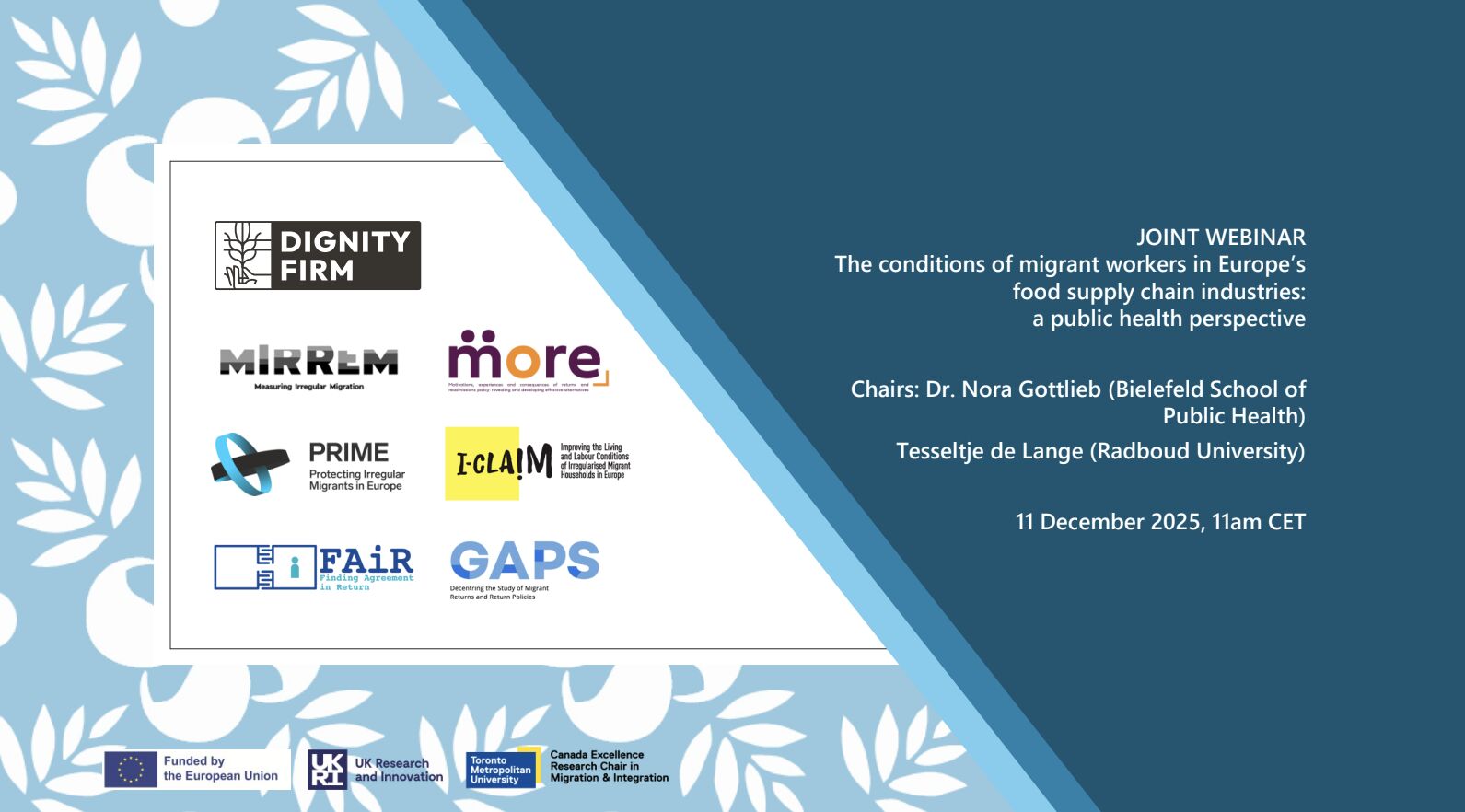


THE PROJECT
The DignityFIRM project is driven by the ambition to deepen the understanding of and improve policies related to two pressing realities faced by Europe today and in the future. The first concerns the labour shortages in sectors vital to our food supply chain, which have become more evident since the COVID-19 pandemic and the war in Ukraine. Migrant workers play a pivotal role in food production and distribution, but often are not provided with safe and dignified working conditions. The second reality is the EU’s commitment to protecting the dignity of all individuals, including migrant workers in Farm to Fork (F2F) labour markets who are not authorized to stay within the EU. The project aims to generate knowledge, policy suggestions, and practical tools tailored to the unique challenges faced by people who move across borders and work in the food supply chain.
The DignityFIRM project is centred around four interconnected objectives:
Develop new knowledge
Develop new knowledge about the regulatory infrastructure that shapes and influences the conditions and vulnerabilities of migrant workers in F2F labour markets across the European Union.
Gain understanding
Gain an intersectional, and better understanding of the division of labour and inequalities in F2F labour markets with respect to the gender, health, ethnicity, migration status, and socio-economic status of migrant workers.
Propose policy measures
Propose group-sensitive policy measures at EU, national, and local levels across four policy domains. These policy measures will aim to foster inclusivity and dignity for migrant workers in the EU.
Disseminate tools & options
Disseminate "DignityFIRM tools & options" developed in collaboration with migrant workers without regular legal status to stay in the EU and stakeholders. These tools and options will assist in facilitating their dignified and rights-based inclusion in the EU.
